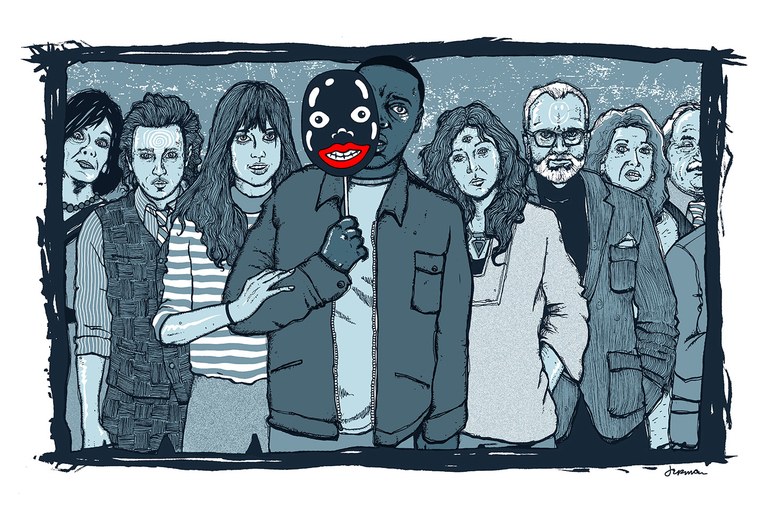Racial profiling is another significant commentary Jordan Peele inserts into Get Out. There are two key moments in the film that speak volumes to the stark realities of police violence.
Police: Sir, can I see your license, please?
Rose: Wait, why?
Chris: Yeah… I have a state ID.
Rose: No, no, no. He wasn’t driving.
Police: I didn’t ask who was driving. I asked to see his ID.
Rose: That doesn’t make any sense.
Chris: Here.
Rose: No, no, no. Fuck that. You don’t have to give him your ID because you haven’t done anything wrong.
Chris: Baby, baby, it’s okay. Come on.
Police: Anytime there’s an incident we have every right to ask…
Rose: That’s bullshit.
In this scene, Roses’ white femininity protects Chris from racial profiling. Although we later realize that Rose was not genuinely concerned about Chris’ safety, as she was primarily worried about creating a paper trail, she fulfills the dominant trope of the victimization of white women. White women must be saved and protected; they are the rational subjects of justice. They are protected by the law. Rose later deploys this strategy towards the ending of the film. As she lies on the ground, struggling against Chris, she sees the police siren and cries out “Help! Help!” In this moment, she plays into the historically and socially constructed binary of the helpless white woman/dangerous and aggressive black man.

In movie theaters across the country, we collectively gasped when we saw the police car lights approach Chris, as he raises his hands in surrender. In fact, Jordan Peele shot an alternate ending to the film that plays into the viewers’ fears that although Chris was able to escape the Armitage’s house, the violence that he encounters as a racialized body is inevitable. In a recent interview, Jordan Peele described this alternate ending: “He gets locked up and taken away for slaughtering an entire family of white people, and you know he’s never getting out, if he doesn’t get shot there on the spot.” Peele decided against this ending because it was “too real.” Instead, he comments: “The ending needed to transform into something that gives us a hero, that gives us an escape, that gives us a positive feeling.”
In “No-bodies: Law, Raciality, and Violence,” Danise da Silva focuses on the Brazilian state’s occupation and surveillance of favelas, economically dispossessed areas with majority black and brown populations, as a tool in which the state “acts only in the name of its own preservation.” Peele’s alternate ending only underscores the need to preserve the real and widespread fear that characterizes the relationships between people of color and the police. Moreover, Peele’s insertion of these two police scenes into Get Out further comments on the vulnerability of unarmed black and brown bodies to police violence.
